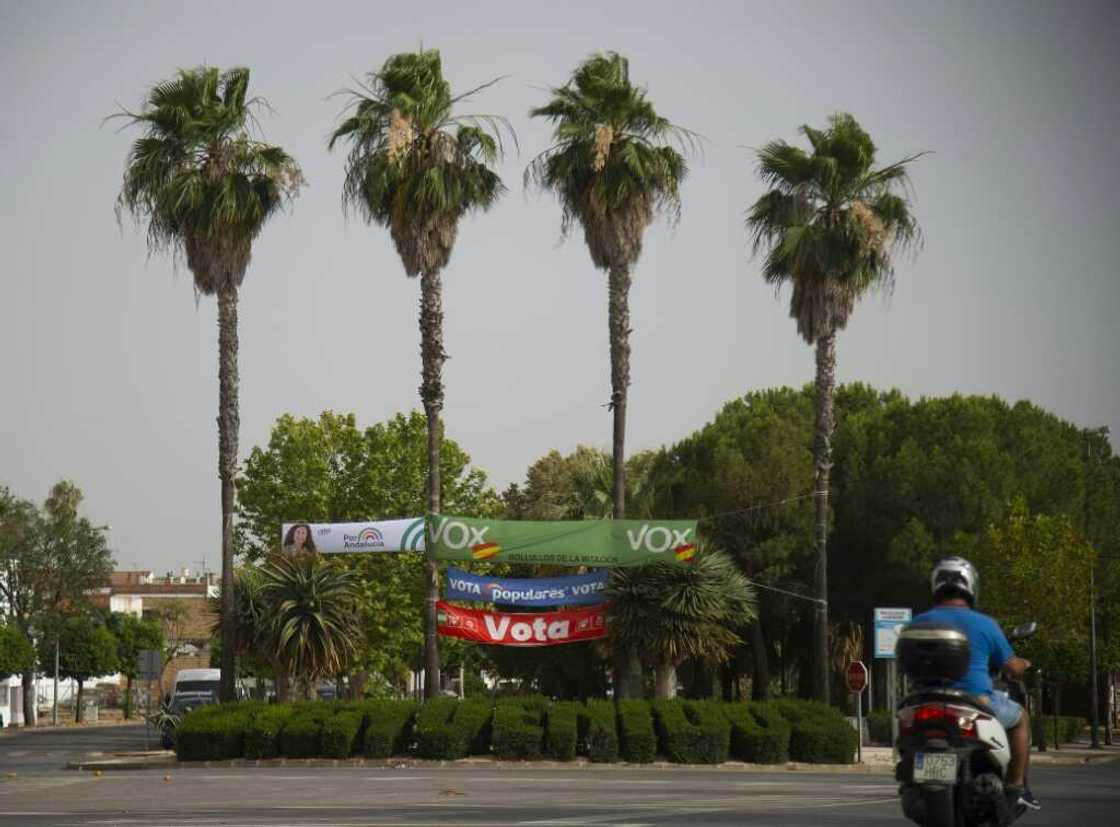Spain's conservatives boosted ahead of 2023 election

Source: AFP
A resounding win by Spain's conservative Popular Party in a weekend regional election in Andalusia appears to have boosted its chances in national elections next year and weakened Socialist Prime Minister Pedro Sanchez.
The Popular Party (PP) secured 58 seats in Sunday's election in Spain's most populous region -- three more than the 55 needed for an absolute majority. That constitutes its best-ever result in the longstanding Socialist stronghold.
The Socialists won 30 seats, their worst-ever result in Andalusia. It governed there without interruption between 1982 and 2018, when it was ousted from power by a coalition between the PP and centre-right Ciudadanos.
This was the Socialists' third consecutive regional election loss to the PP after votes in Madrid in May 2021 and Castilla y Leon in February.
Sanchez's government has been struggling to deal with the economic fallout from Russia's invasion of Ukraine, which has fuelled inflation worldwide, especially through increasing energy prices.
Socialist party officials argued the results of a regional election "can't be extrapolated" nationally.
PAY ATTENTION: Join Legit.ng Telegram channel! Never miss important updates!
But in an editorial, centre-left daily El Pais said no one can deny the gulf in the election scores obtained between the two parties in two of Spain's most populated regions -- Andalusia and Madrid.
This was "more than just a stumble", it argued.
"This may be a symptom of a change in the political cycle" at the national level, it added. The conservative daily ABC took a similar line.
'Worn down'
Pablo Simon, political science professor at the Carlos III University, said this "new cycle" in which "the right is stronger" began when the PP won a landslide in a regional election in Madrid in May 2021.
It could culminate with the PP coming out on top in the next national election expected at the end of 2023, he added.
But Cristina Monge, a political scientist at the University of Zaragoza, took a more cautious line.

Source: AFP
"The government is worn down after four difficult years due to the pandemic" and the war in Ukraine, which has fuelled inflation, she said.
She refused to "draw a parallel" between Andalusia and Spain, arguing "there is still a lot of time" before the next national election.
Sanchez come to power in June 2018 after former PP prime minister Mariano Rajoy was voted out of office in a no-confidence motion triggered by a long-running corruption scandal.
The PP then suffered its worst-ever results in the next general election in 2019, which the Socialists won.
Sunday's election was the first since veteran politician Alberto Nunez Feijoo, a moderate, took over as leader of the PP from Pablo Casado following a period of internal party turbulence.
'Packing his bags'
"People are fed up with Sanchez," the PP's popular regional leader of Madrid, Isabel Diaz Ayuso, said Monday.
"If national elections had been held yesterday, the result would have been the same and today he would be packing his bags," she added.
Up until now, the far-right Vox party had supported the PP in Andalusia but from outside government.
This time around however, it had said its support would be conditional on getting a share of the government of the southern region.
But the PP's commanding victory in Andalusia means that is now moot: it no longer has to rely on far-right party Vox to govern.
At the national level, it could be a different story however, said Pablo Simon.
A PP government nationally that did not rely on Vox would be "impossible" due to the fragmentation of parliament, which has several regional and separatist parties.
Source: AFP




